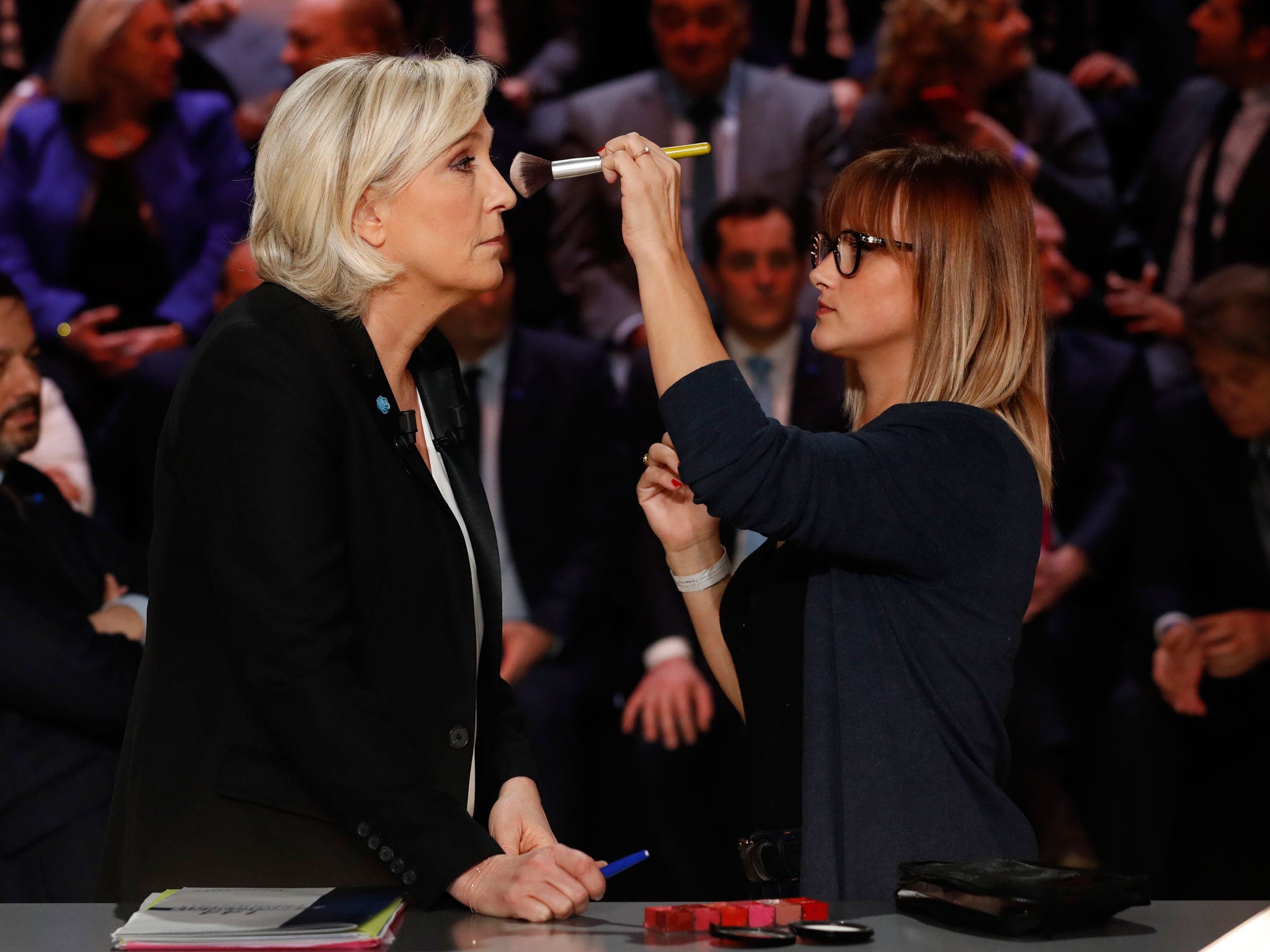Why exactly did Emmanuel Macron and Marine Le Pen waste so much time talking about the burkini?
Not the EU, not the eurozone crisis, not working with Trump or handling Brexit, but two political powerhouses trading blows over a swimsuit. Is this really the pinnacle of political debate in a country on the verge of an election that could prove defining in its cultural and geopolitical future?


France is facing a political crossroads. When the polls open in the race for president at the end of next month, it will mark a battle between two ideological futures for the nation: Marine Le Pen’s anti-immigration, nationalistic, far-right rhetoric versus Emmanuel Macron’s centrist, inclusive, Eurocentric vision of a nation of equals.
Despite their myriad differences, though, when the two candidates clashed on a TV debate last night, they came back to an age-old debate that should never form part of a modern political platform – what women should do with their bodies.
The pair disagreed over the rising use of the “burkini” by Muslim women in France to cover themselves while bathing or spending time on the beach. It is, for reasons inexplicable, a controversial garment in France, and was for a brief period banned in Cannes and other French resorts for being “culturally provocative” (this being a nation that is perfectly comfortable with a bit of naturism at the seaside). French law courts saw sense, overturning such bans because they “violate basic freedoms” – freedoms that one hopes the French people will seek to secure when they cast their ballots in April and May.
Of course the two candidates were coming at the matter of the burkini from opposing positions. Le Pen used its popularity as an example of why she believes French multiculturalism must come to an end, while Macron accused his rival of deliberately making enemies of the French Muslim population. But whether in support or defence of the burkini wearers, the spectacle of two presidential hopefuls slugging it out over women’s bodies and how they choose to cover them (or otherwise) in public leaves me queasy.
Not the EU, not the Eurozone crisis, not working with Trump or handling Brexit, but two political powerhouses trading blows over a swimsuit. Is this really the pinnacle of political debate in a country on the verge of an election that could prove defining in its cultural and geopolitical future?
After all, what business is it of politics to police women’s appearance?
Women’s bodies and what they do with them, how they dress them up, and with whom they choose to share them should always be a personal matter – and yet it never is. When feminists talk about the personal being political, this is exactly what they mean. However hard women fight for the right to make decisions about their bodies, those decisions are all too often the playground – or the tool of political advancement – of others. Even today, even in modern-day France.
For all his attempts to protect the rights and freedoms of all women in France, Macron is playing the same game by allowing Le Pen to use the burkini as a political football. Instead of deferring to the law courts and closing down Le Pen by reminding her that French institutions defend the freedom of their citizens and something as trivial as a piece of clothing is not worth the crucial, limited time he has on the stump in the run-up to the election, he chose to jump in and use the issue for political capital.
The burkini is not just an issue of race or culture; it is about women and their bodies. No modern politician should allow the choices of individual women to be abused in this way. But sadly, the policing of femininity is with us as much today as it was centuries ago when the first edicts ordering women to cover their bodies were issued.

Join our commenting forum
Join thought-provoking conversations, follow other Independent readers and see their replies